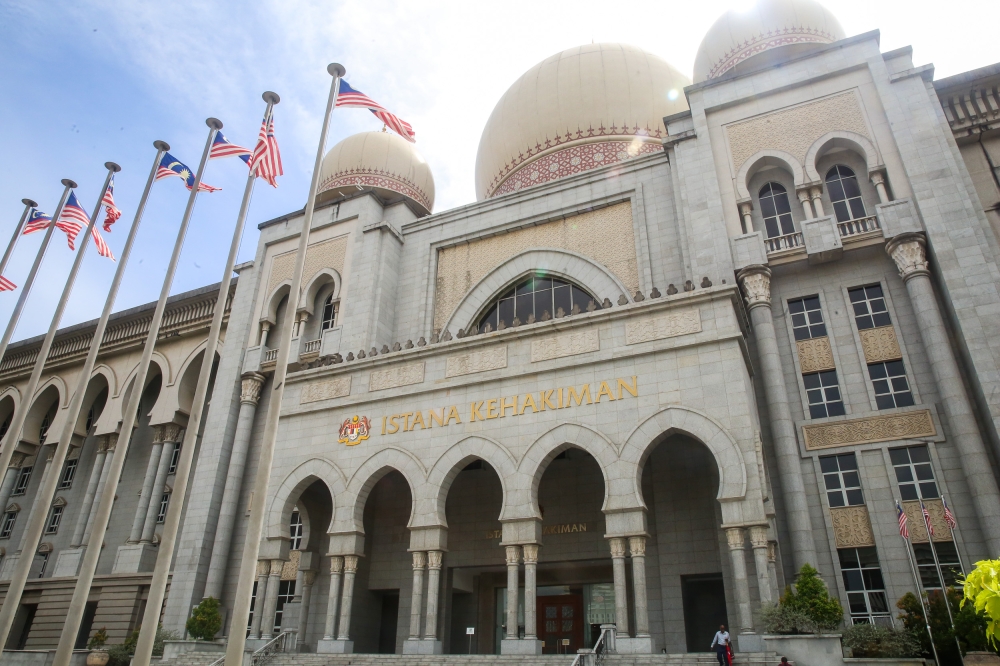KUALA LUMPUR, June 25 — A lawyer is now seeking the High Court’s nod for him to bring 16 questions on constitutional law to the Federal Court, as part of his court bid to challenge the Judicial Appointments Commission (JAC) and its role in recommending candidates to be appointed as judges in Malaysia.
Lawyer Datuk Syed Amir Syakib Arsalan Syed Ibrahim filed his application at the High Court this afternoon, asking the High Court to order that the 16 questions be referred to the Federal Court to be decided there.
He also wants the High Court to stay his main lawsuit until the Federal Court decides on the 16 constitutional questions.
When contacted by Malay Mail, lawyer Daniel Annamalai confirmed that his client Syed Amir Syakib Arsalan had filed the application to refer constitutional questions to the Federal Court.
At the time of writing, the High Court is still scheduled to hear on July 16 Syed Amir Syakib Arsalan’s main lawsuit, where he is seeking to invalidate both the JAC and the Judicial Appointments Commission Act 2009 (JAC Act 2009).
In his main lawsuit, he also wants the court to order the prime minister to follow the constitutional process for the appointment of judges without what he described as “interference” by the JAC.
Currently, the JAC filters and selects suitable candidates before recommending them to the prime minister.
The prime minister can either accept the JAC’s recommendations or ask the JAC to give alternative names.
Civil society has noted that the prime minister is not required to say why he rejected the JAC’s recommendations, and there are also no limits to the number of times he can reject the recommended names.
Under the Federal Constitution’s Article 122B, the prime minister then gives advice to the Yang di-Pertuan Agong, who then appoints the top four judges (including the Chief Justice) and judges (at the Federal Court, Court of Appeal and High Court).
What do the 16 constitutional questions cover?
The 16 constitutional questions mainly cover areas such as whether the JAC Act 2009 is unconstitutional.
The questions also cover issues such as whether the prime minister’s role in the process of appointment of judges had been reduced or become meaningless because of the JAC.
The 16 questions include:
- whether the JAC Act 2009 is inconsistent with the Federal Constitution’s Article 122B;
- whether appointments of judges made according to the JAC Act can be challenged as invalid, if the JAC Act is found to be unconstitutional;
- whether the Yang di-Pertuan Agong’s role and the prime minister’s role under Article 122B(1) are unconstitutionally diminished by JAC’s recommendations;
- whether the prime minister’s constitutional role in advising the Yang di-Pertuan Agong is made “redundant or meaningless” by the JAC’s statutory mechanisms; and
- whether the appointment of judges upon an “unelected” JAC’s recommendation infringes the Federal Constitution’s Article 4(1), 8(1) and 122B.
In an affidavit filed today in court to support his application on the 16 constitutional questions, Syed Amir Syakib Arsalan argued that these questions are “not academic or hypothetical”.
He claimed the questions directly affect the validity of all appointments of judges made in Malaysia since 2009.
He argued that Article 122B gives the prime minister “absolute discretion” to advise the Yang di-Pertuan Agong on the appointment of judges.
He also said the Federal Court as the Federal Constitution’s guardian should decide on the 16 constitutional questions — which include whether the JAC Act is constitutional and consistent with Article 122B.







